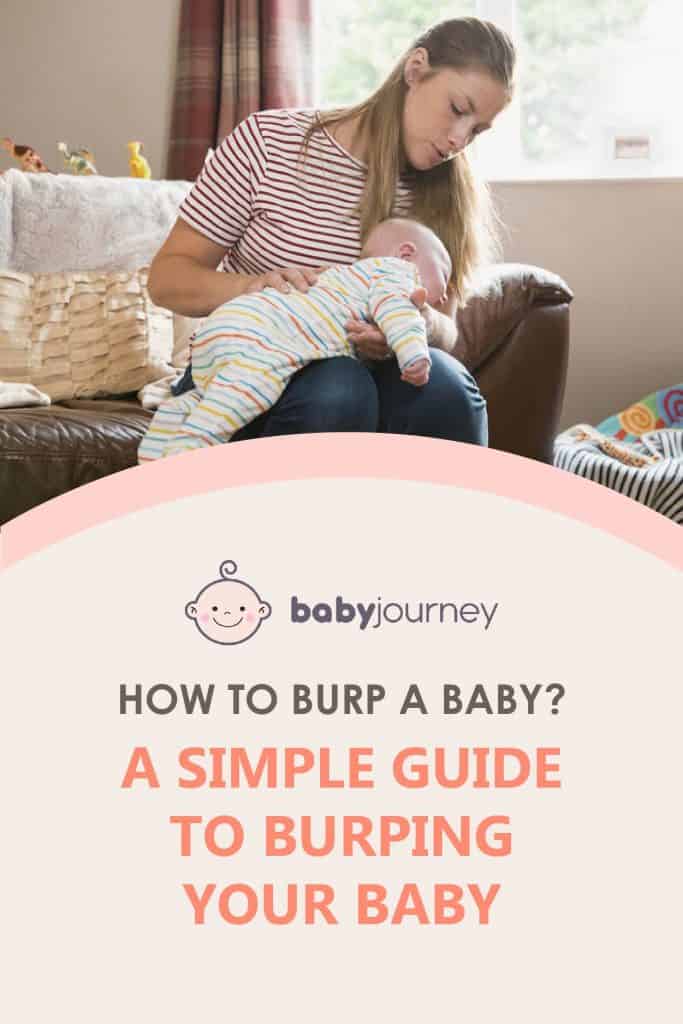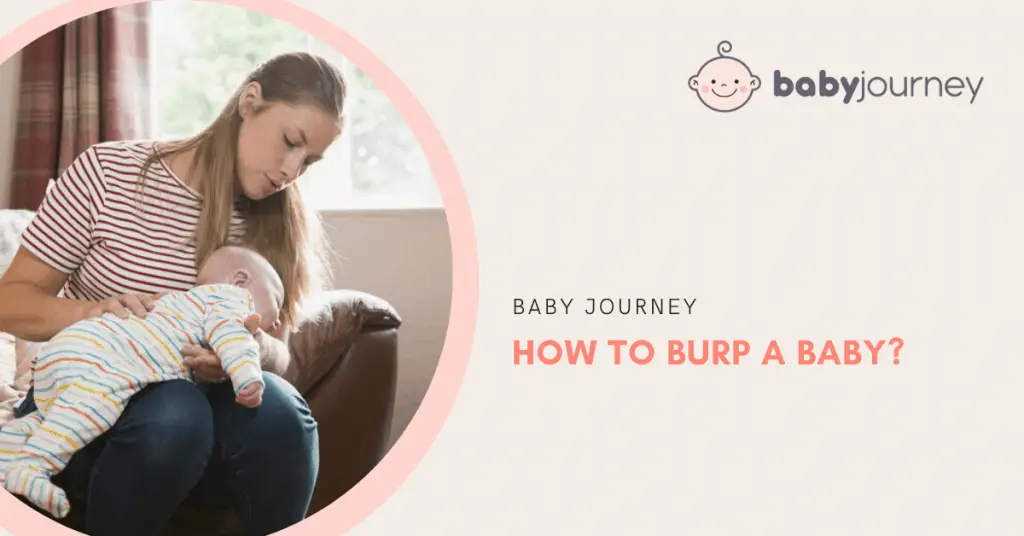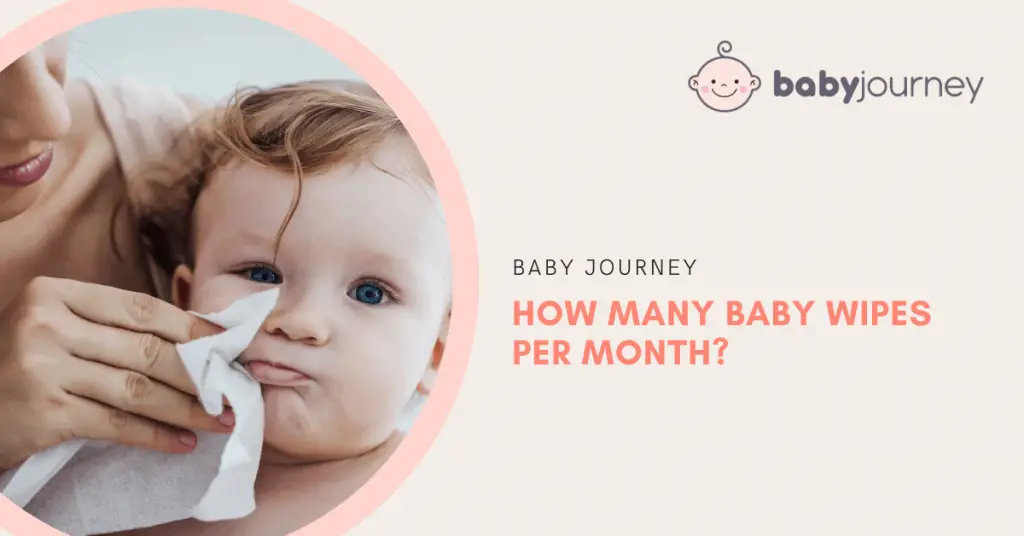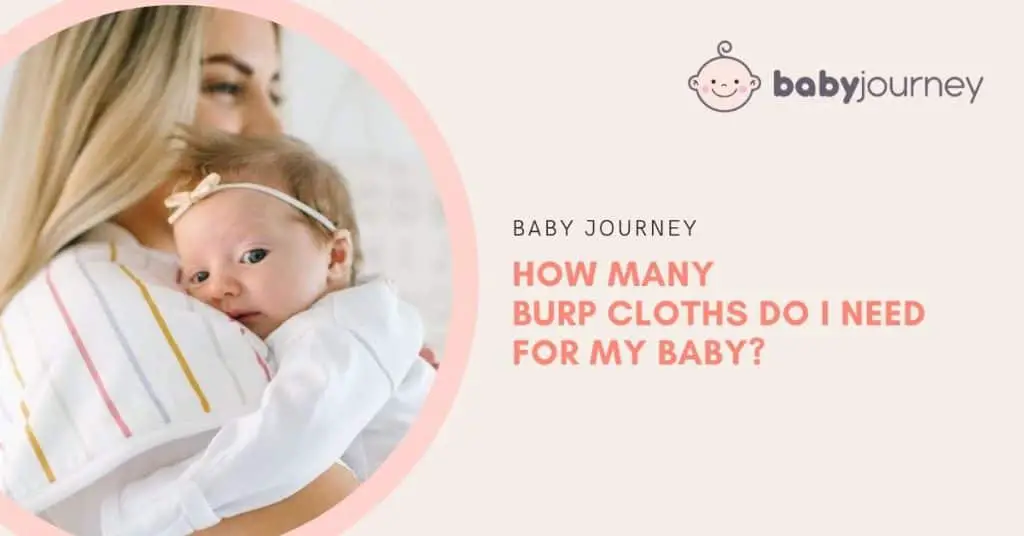Do you often find that your baby spits up or gets gassy after being fed, or is inexplicably cranky after nursing or being bottle fed? It’s because your baby has swallowed some extra air along with the milk, and it’s making the baby’s tummy feel too full and uncomfortable.
Babies sometimes aren’t able to burp up extra air on their own, so it’s important to help them get rid of that extra air by burping them – that is, by patting or rubbing their backs to help them burp.
If you don’t know how to burp a baby, we’ll give you some baby burping tips and tricks so you can help your little one feel best after a meal. Read on to learn more about why you need to burp your baby as well as some easy burp techniques that you can use whether you’re burping baby after breastfeeding or after giving them a bottle.
Why do you need to burp your baby?
Babies drink all of their food, which means that they can intake a lot of extra air during feeding. Sometimes babies can burp easily on their own, but if you notice your baby isn’t getting rid of that extra air on their own after a minute or two, you’ll need to give a little help.
Sometimes, too, a baby falls asleep before burping, so you’ll need to gently help your baby burp even while they’re asleep so they don’t wake up uncomfortable and cranky.
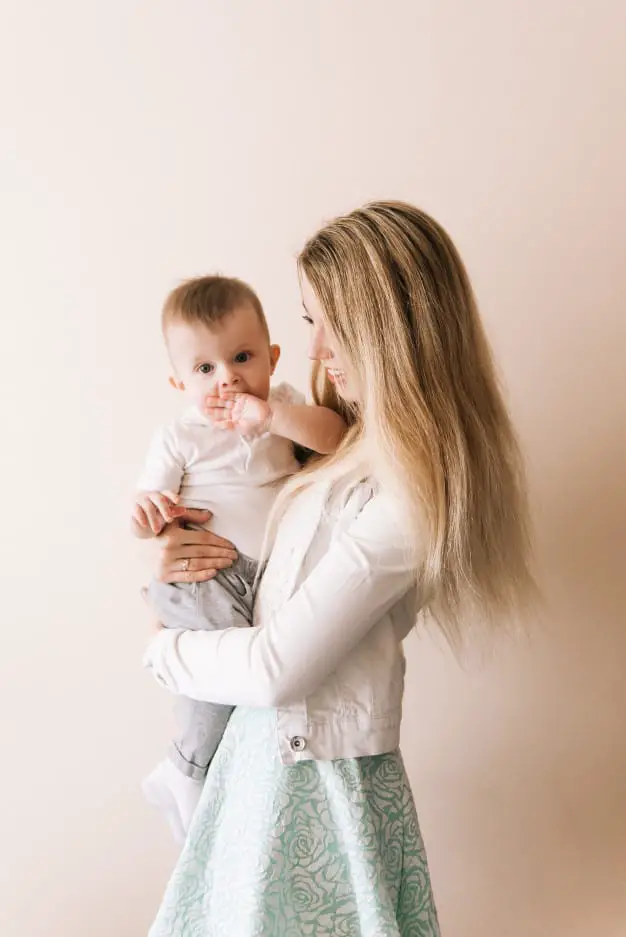
How do I know if my baby needs to burp & how often should I burp my baby?
You’ll know your baby needs to burp if, after you’ve finished nursing, your child starts squirming or fussing while nursing, or if he or she spits up a lot after finishing. That’s because babies get gassy from all that extra air taken in with the milk. In some cases, babies tend to be gassy due to a more sensitive digestive system, in which you could consider opting for powdered milk specially formulated for gassy babies.
Other signs that babies need to burp can be scrunching knees up to their chest as if in pain, making grumpy faces, and hesitating between breasts.
How often do you need to burp your baby? It is recommended that you burp your baby after every 2-3 ounces if you’re bottle-feeding, and between each breast if you’re breast-feeding.
This isn’t a hard-and-fast rule, however; keep an eye on your baby and if you notice any fussiness, squirming, or sudden loss of interest, that’s a good sign your little one needs to burp. Baby might be too full of air and you’ll need to get rid of that before you can continue with nursing.
How to Burp a Baby
There are several different burp positions that you can use. It’s up to you which one to use; the most effective way to burp a baby is whatever works best and is most comfortable for you and baby. Different styles might work at different times of your baby’s life.
Over-the-shoulder
Hold your baby against your shoulder, facing you. Make sure to support your baby’s bottom with one hand. Use the palm of your other hand to firmly pat or rub your baby’s back.
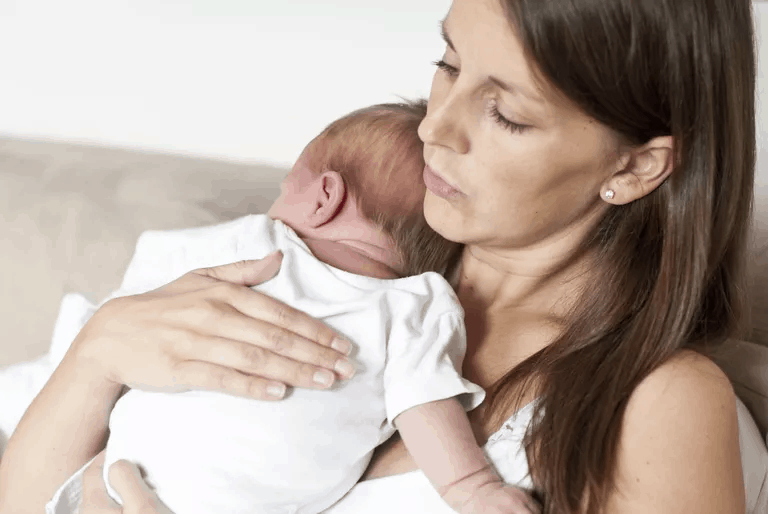
Facedown on lap
Lay your baby down on the stomach across your lap with baby’s stomach on one of your legs and his/her head resting sideways on your other leg. Make sure your baby’s head is slightly higher than their chest. Hold baby securely with one hand, and with the other hand firmly pat or rub your baby’s back.
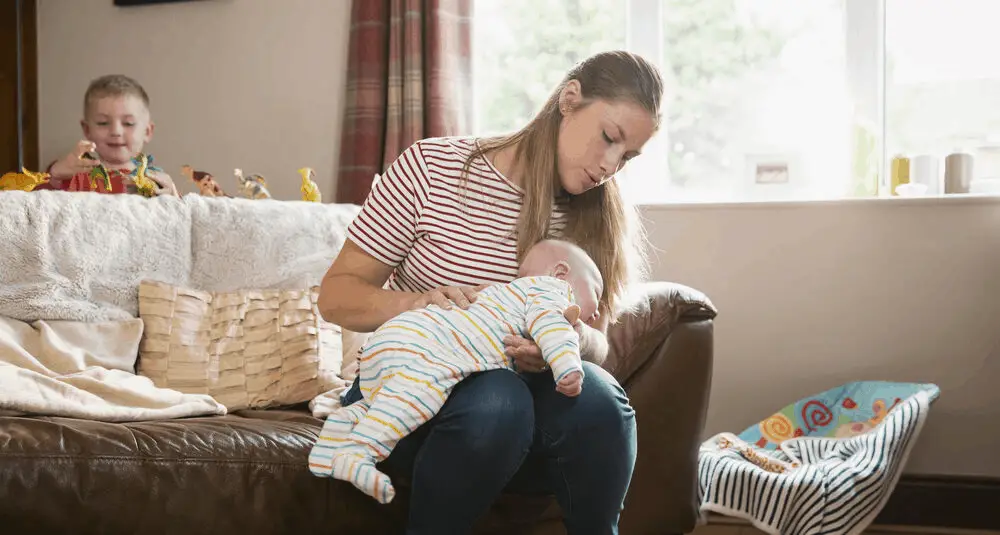
Sitting up
Sit baby down on your lap and lean him/her slightly forward over one arm. Use your free hand to firmly pat or rub baby’s back.
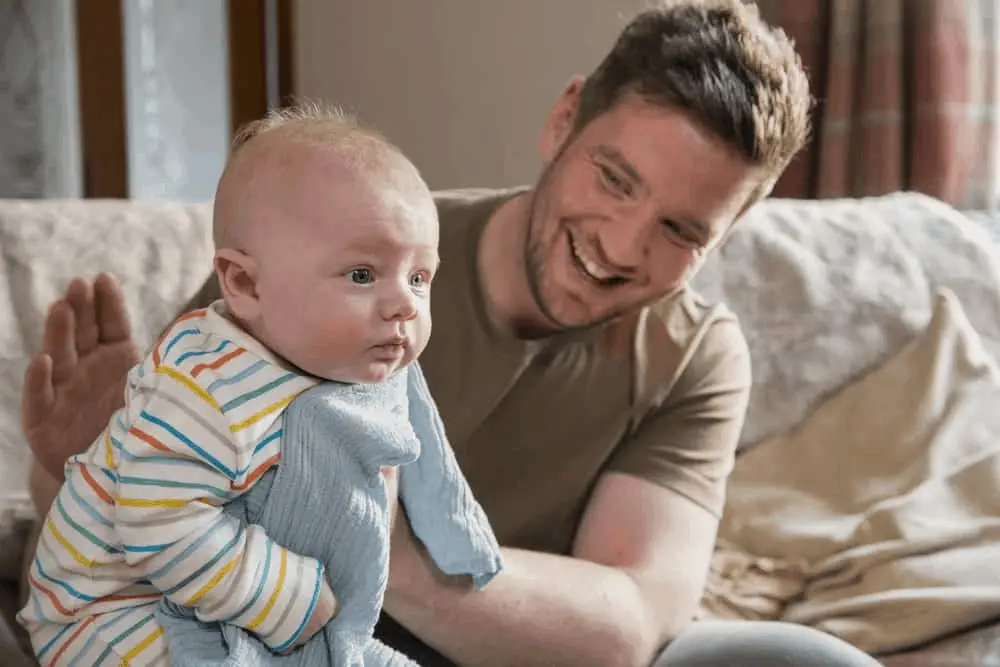
Walking
Only use this method if your baby has gained good head control. Hold baby upright in front of you, facing outwards. Place one hand under your baby’s bottom and lean baby’s tummy against your other arm to apply light pressure. Stand and walk around.
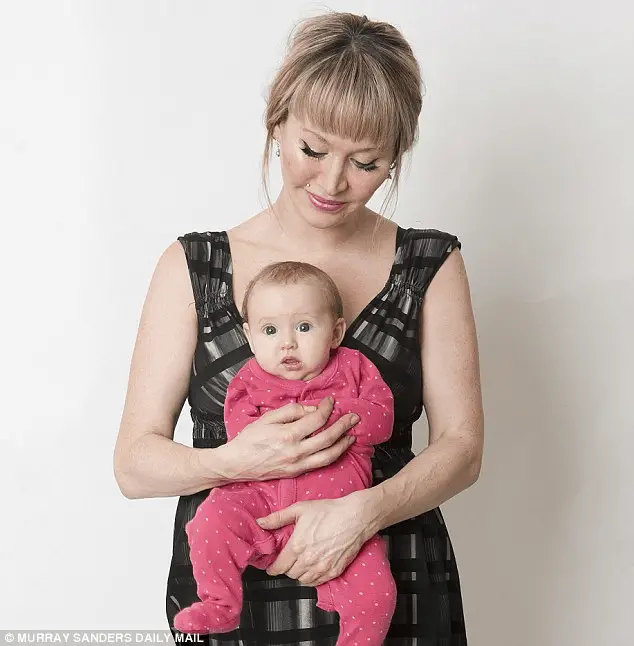
How to burp a sleeping baby
Sometimes babies can fall asleep before they get a chance to burp. You may be worried about that, wondering is it OK to put baby to sleep without burping but don’t worry – it’s actually okay!
You can still burp your sleeping baby. It’s pretty much the same as if your baby were awake, but just move a little slower to make sure baby stays asleep.
The best way to burp a sleeping baby is over the shoulder or upright against your chest as this puts less pressure on your baby’s stomach and won’t wake the baby up as easily.
Just a word of caution though – don’t put your baby to sleep without getting a burp out, as your baby could wake up cranky and in pain from the trapped gas.
Helpful tips when burping your baby
- Put a burp cloth over your shoulder or under your baby’s mouth so your clothes won’t get dirty if anything comes out.
- Keep your baby upright after feeding to help get rid of extra air.
- When bottle-feeding, angle the bottle so no extra air gets into the milk, and consider using a slow-flow bottle.
- When breastfeeding, make sure baby has latched on correctly and that baby isn’t gulping or gasping while nursing.
- If your baby doesn’t burp right away, give it a few minutes and then try again.
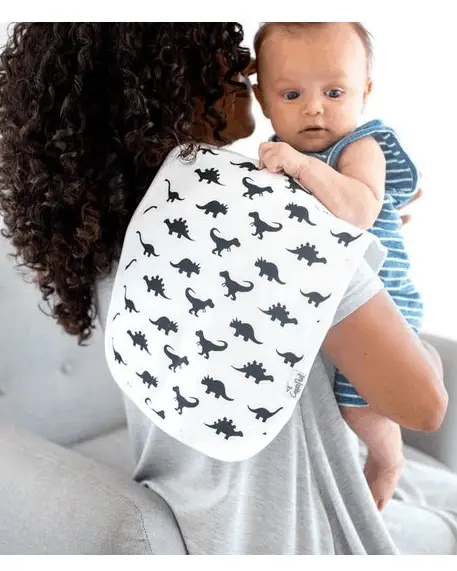
How long does burping take?
Burping a baby doesn’t take very long. Usually your baby will burp after a minute or two, if not sooner. Sometimes all it takes is to move your baby upright, and sometimes it will take some patting and gentle pressure.
Additional FAQs:
Does spit up count as a burp?
Spitting up is normal after a baby eats and is not a problem. If your baby spits up without any pain or discomfort you can count that as a burp.
Why does my baby cry when I try to burp him/her?
Baby is crying when you burp him/her because the gas in your baby’s stomach is causing discomfort. Your child should feel better after burping it out.
What happens if my baby doesn’t burp?
If you don’t burp a baby, the gas in the stomach will cause discomfort, which can lead to crankiness and possibly colic.
What should I do if my baby doesn’t burp?
If your baby doesn’t burp, try again after a few minutes. Keep your baby upright for a while.
At what age do you stop burping a baby?
You can stop burping your baby around 4-6 months. There’s no hard-and-fast rule, so just keep an eye on your baby after you’re done nursing and see if baby needs help burping.
Conclusion
Anytime you breastfeed or bottle feed your baby, it’s important to help your baby burp if they don’t automatically do it by themselves. When babies suck up milk, they’re sucking up a lot of extra air as well, which can cause discomfort in the baby’s tummy.
Help your baby out after you’re done nursing by using one of our four methods for burping your baby. If your baby spits up often after eating, make sure to pick up some burp cloths to keep you and baby clean. You don’t need much else to burp your baby – just the baby’s back, your hand, and a little gentle pressure!
Please feel free to comment below if you have any questions, comments, or concerns.
—
